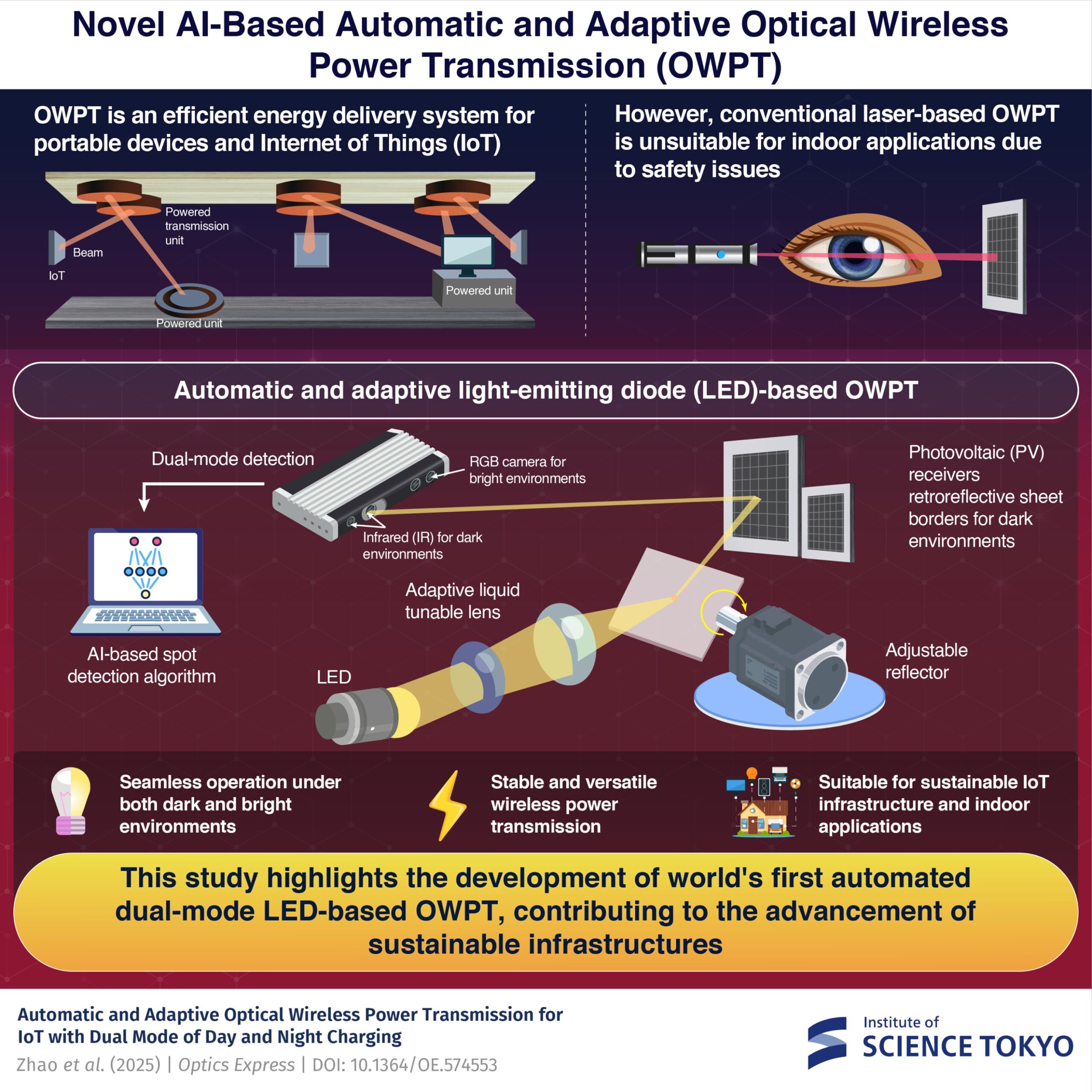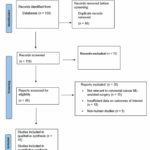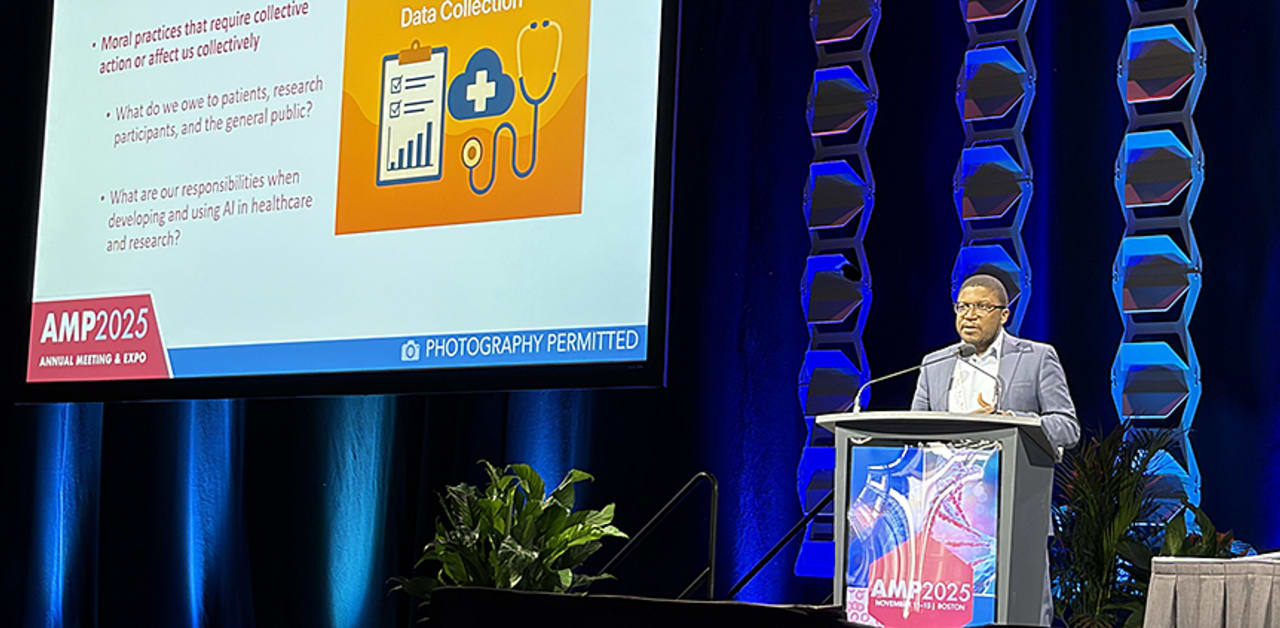At the recent annual meeting of the Association for Molecular Pathology in Boston, Dr. Takunda Matose, MBe, PhD, delivered a compelling plenary lecture on the ethical considerations surrounding artificial intelligence (AI) in healthcare. As a research ethicist at Cincinnati Children’s Hospital and an assistant professor at the University of Cincinnati Medical Center, Dr. Matose’s insights are particularly relevant as AI systems become integral to patient care.
In his lecture titled “Ethical Frontiers: The Promise and Perils of Healthcare AI in a Socially Connected World,” Dr. Matose emphasized the need for pathologists and developers to critically evaluate the assumption that larger datasets inherently yield better AI performance. He noted, “What I’m going to try to convince those of you who are not thinking about ethics all the time is that maybe you should think about ethics a lot more often.” He argued that a focus on ethics can enhance technological performance and improve clinical communication.
Understanding Data’s Role in AI Performance
Dr. Matose challenged the prevalent view that accumulating vast amounts of genomic, imaging, and clinical data will automatically enhance AI models. He presented statistics indicating that healthcare generates between 14% and 30% of all global data, yet a staggering 90% remains unused. This raises concerns about the efficacy of continuously expanding datasets without thoughtful consideration of their quality and relevance.
He articulated that AI should be viewed as a tool for executing complex conditional-probability calculations. To illustrate this point, he referred to the classic Monty Hall problem, highlighting how AI can eliminate incorrect options but cannot guarantee a correct outcome. “There’s no guarantee of success either way,” Dr. Matose explained, underscoring the probabilistic nature of AI.
Bias is another critical concern in AI development. According to Dr. Matose, biases are embedded in the design of AI systems through decisions about data selection, training sets, and annotation methods. “All the decisions… introduce limitations in terms of the kinds of outputs that we’re going to get,” he noted. This inherent bias can lead to significant reasoning errors, particularly in clinical settings.
Ethical Considerations in AI Implementation
Beyond technical challenges, Dr. Matose urged the audience to adopt an “ethical lens” when integrating AI into healthcare systems. He emphasized the importance of focusing on both collective benefits and burdens, as well as obligations to various stakeholders, including patients and healthcare providers. He cautioned that some patients might not benefit from these AI systems, stating, “There’s always going to be someone for whom these things are not going to work.”
Responsible management of healthcare data emerged as a central theme of Dr. Matose’s lecture. He noted that data must be treated as “social facts,” shaped by human actions and societal contexts, and emphasized the necessity for updated regulatory frameworks that reflect today’s technological advancements. He argued for a reconsideration of longstanding assumptions regarding data collection, retention, and disclosure.
Dr. Matose also highlighted the complexity of stakeholder dynamics in healthcare AI, contrasting vertical integration—which centralizes control but limits failure points—with interoperability, which distributes responsibility. Each approach presents its own challenges, making it essential for institutions to weigh the implications carefully.
In closing, Dr. Matose expressed optimism about AI’s potential to enhance clinical workflows, provided it is applied judiciously. He advocated for a balance between human and AI capabilities, arguing that thoughtful human discretion, rather than merely placing humans “back in the loop,” can maximize the effectiveness of both elements. “This will help us get the most out of AI without overpromising and underdelivering,” he concluded, reaffirming the transformative potential of AI when utilized ethically and responsibly.
See also Leaked Documents Reveal OpenAI Paid Microsoft $493.8M in 2024, Spending Surges to $8.65B
Leaked Documents Reveal OpenAI Paid Microsoft $493.8M in 2024, Spending Surges to $8.65B AI-Created Song “Walk My Walk” Tops Billboard Country Chart, Sparking Industry Debate
AI-Created Song “Walk My Walk” Tops Billboard Country Chart, Sparking Industry Debate Vine Reboots as DiVine, Banning AI-Generated Content and Reviving 100.000 Clips
Vine Reboots as DiVine, Banning AI-Generated Content and Reviving 100.000 Clips Institute of Science Tokyo Unveils LED-Based Wireless Power System for Indoor IoT Devices
Institute of Science Tokyo Unveils LED-Based Wireless Power System for Indoor IoT Devices AI Enhances Colorectal Cancer Surgery Outcomes, Reveals Systematic Review Insights
AI Enhances Colorectal Cancer Surgery Outcomes, Reveals Systematic Review Insights











































































